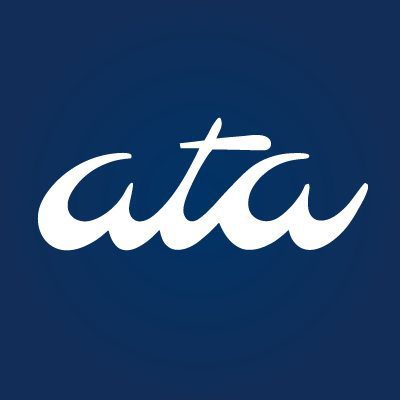Conference Sign Language
Interpreting and Translation Service
Qualified and experienced sign language interpreters for conventions, workshops, employee trainings, summits, retreats, and more!
Table of Contents
Conference Sign Language Interpreting - A Global Need
![]() Managing a conference at any level (local, national, or global) is a massive burden on the event management’s shoulders, and when people are gathering from all parts of the world to hear from industry experts, there’s a lot of anticipation in the air. Everything looks great; the lighting, seating arrangements, microphones, and audience waiting to hear from renowned speakers. The event starts and suddenly you notice numerous faces looking around for support and accommodation.
Managing a conference at any level (local, national, or global) is a massive burden on the event management’s shoulders, and when people are gathering from all parts of the world to hear from industry experts, there’s a lot of anticipation in the air. Everything looks great; the lighting, seating arrangements, microphones, and audience waiting to hear from renowned speakers. The event starts and suddenly you notice numerous faces looking around for support and accommodation.
Why is this? Did you do something wrong? Everything may look good, but did you think about your Deaf and hard-of-hearing attendees? How could you forget to hire sign language interpreting services for live events like these? What kind of message does this send to your audience? Unfortunately, many event organizers often overlook this very important step in preparation. In fact, sign language interpretation services at conferences are unique from other sign language interpretation and accommodation services.
So what is conferencing sign language interpreting, and who benefits from these services? Why are these services important for these types of events? We have all the answers right here!
What is Conference Sign Language Interpreting?
Conference sign language interpreting is a specialized field within sign language interpretation. A sign language interpreter traditionally works between a signed language and a spoken language to facilitate communication across a language boundary. However, sign language interpretation works differently in conference and convention settings. That is because these large-scale events require interpreters to conduct extensive subject-matter research and preparation, traditionally in teams of two or more, to deliver semantic equivalents in a target language most readily understood by the audience members requiring the accommodation service.
According to sign language interpretation best practices, the interpreter will position themselves close to the conference speaker or near the event stage. This gives the target audience a better view of the interpreter, while maintaining close eyesight of the presenter and their presentation media.
How does conference sign language interpreting work?
Interpreters in conferences usually work as teams, where each interpreter interprets for 15 to 20 minutes interchanging. There should always be a secondary interpreter to reassure and confirm the accuracy and completeness of the primary interpreter’s message.
The secondary interpreter also keeps a lookout for omissions or errors from the primary interpreter to ensure that your valued audience members do not miss any important details. Some sign language interpretation services at conferences keep a team of additional interpreters on stand-by that offer services for breaks, side forums and workshops, networking events, and expo and booth tours.
It is worth noting that conference and convention sign language interpreters may work in multiple languages and modalities. They may provide interpretation services from spoken language to signed language and vice versa or even from one sign language other, often incorporating the use of specially trained and certified CDI’s (Certified Deaf Interpreters). In fact, many certified sign language interpreters are fluent in more than merely two languages.
Who benefits from sign language interpretation services?
Conferences, seminars, expos, live events, convention, lectures, and workshops are all attended by Deaf, Deaf-blind, and hard-of-hearing individuals. It goes without saying that attendees with hearing loss cannot keep up with presenters without adequate accommodation services. Not only can these audience members not understand what experts say, but they may also miss out on the important discussions or group chats with their fellow attendees and peers.
However, adequate accommodations are not just about the people attending the live conference or convention. There may well be hundreds or even thousands of Deaf and Hard-of-hearing people participating in the event from their televisions, phones, or computer screen and only a qualified team of conference sign language interpreters can ensure proper equal-access and inclusion of these remote attendees.
Finally, Deaf, Deaf-blind, and hard-of-hearing conference attendees require a sign language interpreter for social settings and to ask questions during Q&A sessions, interview, and meet-and-greets. It is important that these trusted professionals have the necessary subject-matter knowledge and training to accurately interpret what conference attendees are eagerly discussing.
Why Choose Inclusive Communication Services for Conference Sign Language Interpreting Services?
When considering an accommodations agency for your conference or convention’s sign language interpretation services, it is critical to partner with a community-based organization that has a record for providing high-quality, reliable, and reputable services. Why should an event planner consider Inclusive Communication Services for their conference accommodation needs? Here are some of the top reasons:
• Guaranteed Fluency
Millions of people remember watching the funeral ceremony of Nelson Mandela in 2013. However, all these years later and still people recall the unqualified sign language interpreter who betrayed the public’s trust and prevented equal-access to millions of Deaf people watching around the world.
It is important to understand that there is a significant difference between a sign language interpreter and a specialized, conference sign language interpreter. That is because these professionals are trained, experienced, and familiar with the necessary vocabulary and subject-matter required for effective interpreting. Secondly, qualified conference interpreters are capable of simultaneously interpreting for speakers in real-time without omissions or errors. An untrained interpreter does not have this level of expertise and skill and will inevitably provide a lower-quality interpretation.
• Prepared
Simultaneously interpreting for a conference speaker in real-time is a serious challenge that needs targeted preparation. A sign interpreter’s role in such events is to balance professional approaches and techniques to deliver the most complete, accurate, and succinct message possible.
Certified and experienced conference sign language interpreters must do their homework. They will require resources for the following information:
- The mission and objectives of the organization conducting the conference, convention, or expo;
- The objectives and agenda of the conference;
- Background or bios of the speakers and presenters;
How and where the interpreter will stand during the conference; - Any scripts or media that will be used during the event.
• Agile
The role of an interpreter requires the professional to always be on their toes and ready to jump into action. With conferences often having presentations, workshops, networking events, breakout sessions, and socials overlapping and happening simultaneously, conference sign language interpreters develop communication, turn-taking, and self-care strategies to ensure attendees with hearing loss can access an interpreter where and when they need the accommodation. This level of preparation and planning can be overwhelming – that’s why it’s critical to work with an interpreting agency such as Inclusive Communication Services which provides an interpreter or accommodation coordinator to serve as the team lead.
• Cooperation
Conference sign language interpreters must work in teams of two or more to ensure accuracy and prevent fatigue and injury. The team size depends on the length, content density, and number of participants requiring accommodations. Essential to the team’s success is for each professional’s support and cooperation. Conference interpreters must support one another to ensure flawless coordination of the accommodation services and to effectively meet the needs of all the conference’s attendees requiring the service.
An experienced conference sign language interpreter is always unbiased and knows the scope and limit of their role. Most importantly, a professional interpreter remains neutral and unbiased for the duration of their work and avoids making comments or appearing in a manner that calls into question their professionalism, morals, or impartiality. Lastly, sign language interpreters are bound by the Registry of Interpreters for the Deaf (RID) Code of Professional Conduct (CPC) which requires that interpreters maintain the confidentiality of the information to which they are privy before, during, and after their work.
Final Words
Accommodating the communication needs of your Deaf, Deaf-blind, and hard-of-hearing conference attendees not only demonstrates your commitment to hosting an inclusive event but also fulfills your obligation to provide adequate accommodation services, as required by the Americans with Disabilities Act (ADA). As we have outlined, a generic language interpreter cannot do justice with such a complex role and will be liable to cause miscommunication. Scheduling qualified conference and convention sign language interpretation services from a community-based, reputable organization such as Inclusive Communication Services not only ensures quality equal-access and inclusion, but also goes a long way in communicating your organization’s DE&I values and appreciation for your Deaf, Deaf-blind, and hard-of-hearing attendees.
Captions & Sign Language: Online Conferences & Business Events
Translating spoken language into sign language or text captioning is not easy, especially if on the spot for a live conference in front of a mixed audience of Deaf, Deaf-blind, hard-of-hearing and hearing participants. But you can count on Inclusive Communication Services to provide accurate and quality conference accommodations that afford equal-access to your spoken message via qualified sign language interpreters, media accessibility talent, and caption providers.
- Our sign language professionals are versed in a variety of Sign Language modalities and forms, including all the body movements, facial expressions, and signs incorporated into this complex language. Sign language interpreters are available to appear on-stage, on-screen, or as personal interpreters to ensure equal-access and inclusion of participants with hearing loss.
- Our media accessibility talent include professional sign language interpreters, caption providers, and voiceover artists that ensure all aspects of your media – whether visual or auditory – are accessible to those with hearing loss or vision loss. Media accessibility talent can add an in-frame interpreter, multilingual captioning, or visual description voiceover with a multitude of customizations to meet any communication or accommodation need. The end result is an inclusive media product that’s completely accessible to your mixed-ability audience!
- Our caption services are available as a general accommodation or individual accommodation, depending on the needs of your audience. For open-caption services, the transcribed audio is displayed as text on the event’s main stage or screen to provide equal-access to those who do not utilize an interpreter. For closed-caption services, our providers can issue private links that open in a discreet window for those who are late deafened or hard-of-hearing to have equal-access to the auditory message.
Whether it be about education, healthcare, or government, Inclusive Communication Services has accommodation professionals including proficient sign language interpreters, premium accessible media talent, and top-quality caption providers to ensure your conference runs smoothly and inclusively.
Let’s start planning your next conference! Speak to one of our representatives at (347) 927-5770 or write to us at info@inclusiveasl.com.
Tips for Working with Conference Interpreters
- Request your conference interpreting team at least two-weeks in advance to your event to ensure providers who are familiar with the conference field or topic.
- Submit all presentation materials, including Powerpoint presentations, agendas, speeches, videos, music, and visual media, to an ICS coordinator as soon as they become available to allow your providers sufficient time to prepare.
- On the day of your conference or convention, please have printed materials available for the interpreters as well as other necessities such as water and bathroom access.
- Anticipate the interpreter team arriving 10-20 minutes prior to your event start-time. Ensure the interpreters have all necessary parking and security clearances.
- During the conference, remind presenters to speak normally and to enunciate. Avoid using vague phrases such as "look here" or "over there." Instead, use visually clear phrasing such as "look next to the picture on this slide."
- Ensure the interpreters are well positioned to hear the presenters and can be clearly seen by the audience. Have chairs ready or reserve seats near where the interpreters will be stationed for them to sit on breaks and comfortably alternate while working.
- Prepare for interpreters to alternate every 15-30 minutes to avoid fatigue and errors. Interpreters will look to switch on a natural transition in your agenda or presentation, unless one is unavailable.
- If you intend to show a video, ensure you have captions "on" or notify the interpreters in advance if captions are unavailable. If house lights will be dimmed or turned out during the media, a spotlight on the interpreter or similar solution will be necessary.
- Still anxious? Reach out to an ICS coordinator to ask a question or discuss how to prepare for your service request.
Frequently asked questions
There are dual reasons behind having a team of sign language interpreters at a conference.
- Firstly, sign language interpreting is an exhausting job and drains your energy fast. Having a team of two or more interpreters allows them to switch the position at brief intervals of 15-30 min.
- Secondly, it ensures that you have a supporting interpreter to maintain the accuracy and quality of the sign language translation and provide effective communication without any error.
Yes, we have a team of certified and experienced sign language translators for conferences and other business events. They work along with ASL interpreters to provide on-the-spot translation and caption services to the deaf and hearing people in the audience.
We maintain the highest quality standards for ASL translations and caption services. Our services should be scheduled a minimum 6-hour before the conference. It allows us enough time to plan and provide you the best sign language translator for the job. This policy is non-negotiable and standard for all interpreting agencies in the United States.
Sign language, Captioning, and Accessible Media Services
Premium accommodation services for the Deaf, Deaf-blind, blind, and hard-of-hearing. Available in Person and Online!

Need a professional sign language interpreter, caption provider, or media translator?
Making ADA accommodations simple and inclusive!
We are here to help you!



